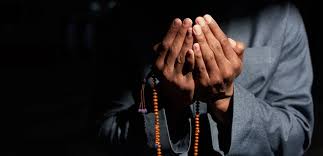Staying healthy during hajj is important to savor this holy pilgrimage with energy and mindset. Hajj is physically as well as psychologically demanding, involving long days of rituals under the sun, and jam-packed conditions.
If you strictly follow practical medical guidance and ready yourself well ahead of time, you can protect your health and focus on the religious benefits of this once-in-a-lifetime experience. In this article, we will guide you through the best tips for staying healthy during hajj.
Pre-Hajj Preparations for Staying Healthy
Preparation of mind and body before starting your sacred journey is crucial for staying healthy during hajj.
Get a Full Medical Check-Up
One of the biggest things in staying healthy during hajj is to undergo a thorough medical check-up a few months before your departure.
What this does is it allows your doctor to evaluate your overall health and heal any existing illnesses that would be affected by the physical effort involved in Hajj. Detection in the early stages guarantees that you are capable of taking the necessary steps to stay safe and healthy.
Update Your Vaccinations
To stay safe from communicable illnesses, it is essential for staying healthy during hajj. Meningitis, flu, and COVID-19 vaccinations are highly recommended or in certain situations compulsory for pilgrims.
This means staying immune when performing Hajj, go see your physician, and ensure that you are up to date with all vaccinations before leaving for travel.
Hajj involves a lot of walking and physical exertion, so pre-conditioning your stamina is essential. Start with normal walking or light exercises to condition your body.
This will keep you from getting exhausted and reduce the likelihood of injury, allowing you to focus more on the spiritual aspect of your Hajj and stay healthy during Hajj.
Pack a Personalized Health Kit
Having a well-stocked first-aid kit can do much to deal with minor health issues while traveling. Bring painkillers, antiseptics, plasters, hand sanitizers, and personal medications if you require them.
This simple step adds to your cause of staying healthy during hajj by enabling you to quickly respond to small health issues and maintain hygiene throughout your pilgrimage.
Staying Hydrated and Eating Right
One of the top medical tips for staying healthy during hajj is to stay well-hydrated. The hot climate and continuous physical activity can quickly lead to dehydration, which affects your energy and overall health.
Make it a habit to drink plenty of water throughout the day, even if you don’t feel thirsty. Carry a reusable water bottle with you and take small sips regularly to maintain hydration.
Staying Healthy During Hajj: Choose Nutritious and Light Meals
Eating the right foods is just as important as drinking enough water when staying healthy during hajj. Opt for light, balanced meals that provide energy without causing digestive discomfort.
Fresh fruits, vegetables, whole grains, and lean proteins are excellent choices to keep your body nourished. Avoid heavy, oily, or spicy foods that may upset your stomach or cause fatigue.
Avoid Risky Foods to Protect Your Health
To prevent foodborne illnesses, be cautious about where and what you eat during Hajj. Avoid street food or meals from unregulated vendors, as hygiene standards may vary.
Stick to trusted sources such as your accommodation’s kitchen or packaged foods. Being mindful of your food choices is a smart way of staying healthy during hajj and ensuring your body stays strong.
Staying Healthy During Hajj: Use Oral Rehydration Solutions if Needed
If you experience signs of dehydration such as dizziness or weakness, oral rehydration salts (ORS) can be very helpful. These solutions help replenish essential electrolytes lost through sweating.
Keeping a pack of ORS in your health kit supports your effort in staying healthy during hajj, especially during intense days of pilgrimage.
Protecting Yourself from Heat and Sun
One of the finest medical advice for staying healthy during hajj is to drink plenty of water. Excessive heat and constant physical exertion can lead to dehydration easily, which affects your energy level and general health.
Make it a habit to drink plenty of water throughout the day even if you do not feel thirsty. Carry a refillable bottle with you and take occasional sips to keep yourself hydrated.
Select Healthy and Light Foods
Feeding the body with proper foods is as crucial as drinking plenty of water when staying healthy during hajj. Select light, balanced meals that are not heavy on your stomach while offering energy.
Fresh fruits, vegetables, brown grains, and lean proteins are good options to maintain your body’s health. Refrain from oily, spicy, or heavy foods that can upset your stomach or lead to tiredness.
Avoid Risky Foods to Safeguard Your Health
To prevent food poisoning, be cautious about where and what you eat while in Hajj. Avoid eating from the street or uncontrolled stalls since hygiene standards cannot be as good.
Choose trusted sources such as the boarding’s kitchen or packaged foods. Being cautious with what you eat is a wise move towards staying healthy during hajj and keeping your body in shape.
Use Oral Rehydration Solutions if Needed
If you experience signs of dehydration such as weakness or dizziness, oral rehydration salts (ORS) can be a huge lifesaver. The liquids replace essential electrolytes lost through sweating.
Carrying a packet of ORS in your health kit is a testament to your commitment to staying healthy during Hajj, especially on busy days of pilgrimage.
Preventing Infections and Contagious Diseases
One of the biggest challenges pilgrims face during Hajj is the intense sun and heat. Protecting yourself from direct sunlight is essential for staying healthy during hajj and avoiding heat-related illnesses. Use an umbrella or wear a wide-brimmed hat to provide shade whenever possible, especially during peak daylight hours.
Staying Healthy During Hajj: Wear Appropriate Clothing for Comfort and Protection
Choosing the right clothing plays a vital role in managing heat exposure. Light-colored, loose-fitting, and breathable fabrics help keep your body cool and reduce sweating.
This not only makes you feel more comfortable but also supports your goal of staying healthy during hajj by preventing heat exhaustion and sunburn.
Apply Sunscreen Regularly
Even if you are wearing protective clothing, applying a broad-spectrum sunscreen on exposed skin is important. A sunscreen with at least SPF 30 will help guard against harmful UV rays that can cause sunburn and long-term skin damage. Don’t forget commonly exposed areas like your face, neck, and hands to stay protected during your pilgrimage.
Plan Your Activities to Avoid Peak Heat Hours
If possible, try to schedule your rituals and movements during cooler parts of the day, such as early morning or late afternoon. This practical approach can reduce the risk of overheating and support your efforts in staying healthy during hajj by minimizing exposure to extreme temperatures.
Foot Care Tips for Pilgrims
One of the key aspects of staying healthy during hajj is taking good care of your feet. You’ll be walking long distances every day, so wearing comfortable, well-fitting shoes or sandals is essential.
Choose footwear that provides good support and cushioning to prevent blisters, soreness, and fatigue during your pilgrimage.
Avoid Walking Barefoot on Hot Surfaces
While Ihram requires simple attire, it’s important not to walk barefoot on hot or rough surfaces to protect your feet from burns, cuts, and infections. If you prefer sandals, make sure they have a sturdy sole that shields your feet from the harsh ground conditions. This small precaution can make a big difference in staying healthy during hajj.
Staying Healthy During Hajj: Keep Your Feet Clean and Dry
Good foot hygiene is vital to prevent infections such as athlete’s foot or fungal growth. Wash your feet regularly, dry them thoroughly—especially between the toes—and change your socks daily if you wear them. Keeping your feet clean and dry supports overall comfort and health throughout your journey.
Treat Any Wounds Promptly
If you develop blisters, cuts, or any wounds on your feet, treat them immediately to avoid complications. Carry antiseptic ointments and bandages in your health kit, and don’t hesitate to seek medical help if an injury worsens.
Prompt care is a critical part of staying healthy during hajj and ensuring you can complete your pilgrimage comfortably.
Staying Mentally and Emotionally Balanced
Staying mentally and emotionally balanced is just as important as physical health when it comes to staying healthy during hajj. Engaging in mindfulness practices and dhikr (remembrance of Allah) can help calm your mind, reduce stress, and keep you spiritually grounded throughout the pilgrimage.
Get Enough Rest and Sleep
The busy schedule and crowded environment during Hajj can easily disrupt your sleep. However, prioritizing adequate rest is essential for maintaining your energy and mental clarity.
Aim for regular sleep whenever possible, as good rest supports your body’s ability to cope with the physical demands of Hajj and aids in staying healthy during hajj.
Staying Healthy During Hajj: Listen to Your Body and Avoid Overexertion
Hajj is a spiritually rewarding journey, but it can be physically exhausting. Pay attention to your body’s signals and don’t push yourself beyond your limits.
Taking breaks and pacing your activities will help you avoid burnout and maintain a balanced mental state, which is key for staying healthy during Hajj.
Seek Support When Feeling Overwhelmed
Feeling overwhelmed or anxious is natural during such a demanding experience. Don’t hesitate to reach out to your group members, guides, or medical staff if you need emotional or practical support.
Connecting with others and sharing your concerns can strengthen your resilience, help you maintain emotional balance on your journey, and help you in staying healthy during hajj.
Continue Your Journey of Understanding
Ready to deepen your knowledge beyond the Hajj rituals day by day? Explore these helpful guides tailored for every step of your pilgrimage:
Discover the rules of ihram for men and women and enter Hajj in a state of purity.
Learn how to perform Tawaf with confidence and focus.
Understand the sacred Sa’i between Safa and Marwah in a clear, step-by-step way.
Unsure what to do in Mina during Hajj? We’ve got you covered.
Reflect on what is the Day of Arafat and why it’s the heart of Hajj.
Prepare for the important Muzdalifah night rituals every pilgrim must know.
Follow our stoning the Jamarat guide to complete this symbolic act correctly.
Learn how to do animal sacrifice in Hajj with our complete how-to.
Get Tawaf al-Ifadah explained so you don’t miss this key ritual.
Don’t forget a thing—our Hajj packing list essentials will keep you organized.
Stay safe with expert advice on staying healthy during Hajj.
Wondering what to do after Hajj? Start your next chapter spiritually strong.
If you’re new to Islam, read our Hajj guide for new Muslims—made just for you.
Set meaningful spiritual goals for Hajj to get the most out of your journey.
Find clear answers to the most common Hajj questions answered by experts.
Dive deeper into each topic and walk your Hajj journey with clarity and peace of mind.





